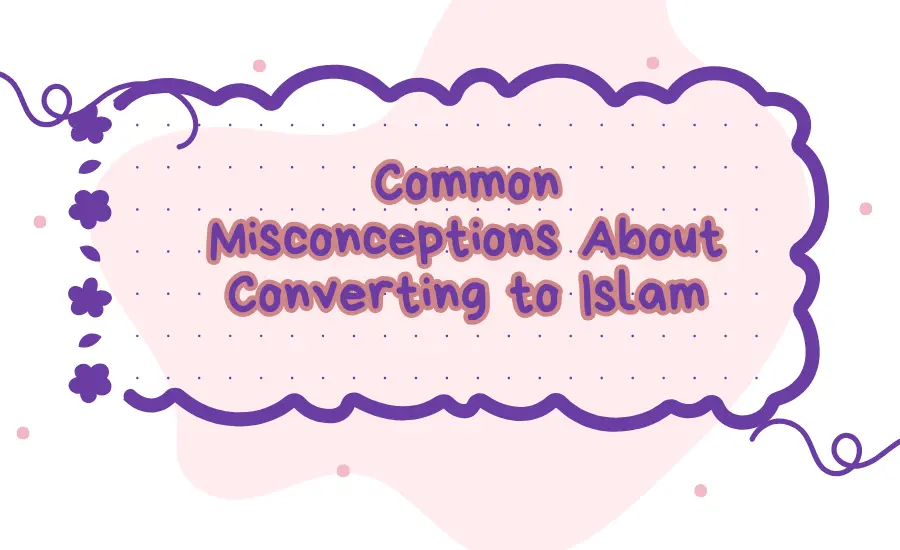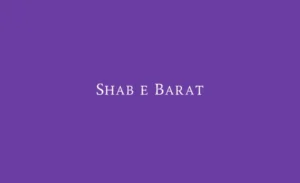Islam is one of the fastest-growing religions in the world, embraced by millions of people from diverse cultures, ethnicities, and backgrounds. Yet, the process of converting to Islam (reverting to Islam) is often misunderstood due to cultural stereotypes, media portrayals, and misinformation.
Many people assume that embracing Islam means giving up one’s identity, freedom, or family ties. However, Islam is not a culture or ethnicity, it is a universal faith revealed by Allah for all humankind.
This article aims to clarify the most common misconceptions about converting to Islam using authentic references from the Quran, Hadith, and historical evidence, so readers can understand the true essence of becoming a Muslim.
Islam Forces People to Convert
One of the biggest misconceptions is that Islam spreads by force or that people are compelled to accept the faith. In reality, Islam strictly forbids compulsion in religion.
Quranic Evidence
Arabic:
لَا إِكْرَاهَ فِي الدِّينِ ۖ قَد تَّبَيَّنَ الرُّشْدُ مِنَ الْغَيِّ
Transliteration: La ikraha fid-deen; qad tabayyana ar-rushdu minal ghayy
Translation (Surah Al-Baqarah 2:256): “There is no compulsion in religion; the right path has become distinct from the wrong.”
This verse establishes that faith must be a personal choice, not a result of pressure or fear. Prophet Muhammad (peace be upon him) never forced anyone to accept Islam; instead, he conveyed the message through wisdom and good character.
Converting to Islam Means Losing Freedom
Many people believe that Islam restricts personal freedom, especially for new Muslims. In reality, Islam frees people from servitude to other humans or worldly desires and connects them directly with Allah, the Creator.
Islam’s teachings are not meant to limit, but to elevate human dignity by guiding one toward justice, kindness, and balance.
Quranic Perspective
Arabic:
وَمَن يُسْلِمْ وَجْهَهُ إِلَى اللَّهِ وَهُوَ مُحْسِنٌ فَقَدِ اسْتَمْسَكَ بِالْعُرْوَةِ الْوُثْقَىٰ
Transliteration: Wa man yuslim wajhahu illallahi wa huwa muhsinun faqad istamsaka bil urwati al-wuthqa
Translation (Surah Luqman 31:22): “And whoever submits his face to Allah while being righteous has grasped the firmest handhold.”
True freedom lies in submission to the Creator, not to material desires or societal pressures.
Converts Must Abandon Their Culture or Identity
Islam does not erase a person’s cultural background, it refines it. A revert can remain proud of their language, heritage, and traditions as long as they do not contradict Islamic principles. Prophet Muhammad (peace be upon him) said in a Hadith:
Arabic:
لَا فَضْلَ لِعَرَبِيٍّ عَلَى أَعْجَمِيٍّ إِلَّا بِالتَّقْوَى
Transliteration: La fadla li’arabiyyin ‘ala ajamiyyin illa bittaqua
Translation: “There is no superiority of an Arab over a non-Arab except in piety.” (Musnad Ahmad)
Thus, Islam celebrates diversity and unity under one belief, the worship of One God (Allah).
Islam Oppresses Women and Converts Must Follow Rigid Gender Rules
Another widespread myth is that women lose their rights when they become Muslim. In fact, Islam gave women legal, financial, and spiritual rights over 1,400 years ago, long before modern laws did.
Women have the right to education, inheritance, marriage consent, and even to keep their maiden name after marriage.
Quranic Reference
Arabic:
وَلَهُنَّ مِثْلُ الَّذِي عَلَيْهِنَّ بِالْمَعْرُوفِ
Transliteration: Walahunna mithlu allathee alayhinna bil ma’ruf
Translation (Surah Al-Baqarah 2:228): “And women have rights similar to those of men, according to what is fair.”
Islam’s emphasis is on mutual respect and balance, not suppression.
New Muslims Are Isolated or Unwelcome
Many fear that after converting to Islam, they will face isolation or lack of support. While some reverts may face challenges, the Muslim community (Ummah) is based on brotherhood and compassion. Prophet Muhammad (peace be upon him) said:
Arabic:
المسلم أخو المسلم لا يظلمه ولا يسلمه
Transliteration: Al-muslimu akhu al-muslim la yazlimuhu wa la yaslimuhu
Translation: “The Muslim is the brother of another Muslim; he does not wrong him nor abandon him.” (Sahih Bukhari)
Reverts are encouraged to join Islamic centers, online revert communities, and local mosques for guidance and companionship.
Islam Is Harsh and Focused on Punishment
Islam is often portrayed as a religion of strict laws and punishments. However, its foundation is mercy, forgiveness, and justice.
Quranic Evidence
Arabic:
وَرَحْمَتِي وَسِعَتْ كُلَّ شَيْءٍ
Transliteration: Wa rahmati wasi’at kulla shay’
Translation (Surah Al-A’raf 7:156): “My mercy encompasses all things.”
Prophet Muhammad (peace be upon him) was known as Rahmatan lil ‘alameen – “A mercy to all the worlds” (Surah Al-Anbiya 21:107).
Islam seeks to reform hearts, not merely enforce rules.
Converts Must Be Perfect Muslims Immediately
Another common fear is that one must be “perfect” before taking the Shahada (declaration of faith). In truth, Islam encourages gradual growth and learning. Prophet Muhammad (peace be upon him) said:
“Every son of Adam commits sins, and the best of those who sin are those who repent.” – (Sunan Ibn Majah, 4251)
Conversion is the beginning of a beautiful journey, not the end. Allah loves sincere effort and repentance more than perfection.
Islam Is Only for Arabs or Asians
Islam is a global faith that transcends ethnicity and geography. The Quran addresses all humanity, not one tribe or nation.
Quranic Evidence
Arabic:
يَا أَيُّهَا النَّاسُ إِنَّا خَلَقْنَاكُم مِّن ذَكَرٍ وَأُنثَىٰ وَجَعَلْنَاكُمْ شُعُوبًا وَقَبَائِلَ لِتَعَارَفُوا
Transliteration: Ya ayyuhan nasu inna khalaqnakum min dhakarin wa untha waja’alnakum shu’uban wa qaba’ila lita’arafu
Translation (Surah Al-Hujurat 49:13): “O mankind! We created you from a male and a female and made you into nations and tribes so that you may know one another. Indeed, the most noble of you in the sight of Allah is the most righteous of you.”
Thus, Islam’s invitation is universal and inclusive.
Relevance in Today’s World
In an age of misinformation and digital narratives, understanding Islam from authentic sources is more important than ever. With rising interest in spirituality, peace, and mental clarity, Islam offers a comprehensive system of belief that aligns with both the heart and intellect.
Modern reverts often cite the Quran’s logical consistency, scientific accuracy, and moral clarity as key reasons for embracing Islam.
Key Lessons & Reflections
These insights remind us that Islam is a faith of balance, mercy, and wisdom – built on truth rather than misconception. By understanding its genuine teachings, one can appreciate the harmony between faith, intellect, and humanity that Islam upholds.
- Islam is based on peace, justice, and free choice.
- Converts are respected and supported, not judged.
- Islam honors all backgrounds and promotes equality.
- Becoming Muslim is about spiritual truth, not cultural conformity.
Conclusion
Conversion to Islam is not about changing who you are, it’s about discovering who you truly are before your Creator. Allah does not seek perfection but sincerity, humility, and faith. Here’s a Quranic reminder:
Arabic:
إِنَّ اللَّهَ لَا يُغَيِّرُ مَا بِقَوْمٍ حَتَّىٰ يُغَيِّرُوا مَا بِأَنفُسِهِمْ
Transliteration: Inna Allaha la yughayyiru ma biqawmin hatta yughayyiru ma bi anfusihim
Translation (Surah Ar-Ra’d 13:11): “Indeed, Allah will not change the condition of a people until they change what is in themselves.”
Islam invites every soul to peace, purpose, and the light of truth. Those who embrace it are not leaving something behind, they are returning to the pure belief in One God (Tawheed) that all prophets preached.
Frequently Asked Questions (FAQs)
Is it difficult to convert to Islam?
No, conversion is simple. You only need to declare the Shahada (faith statement): “Ashhadu an la ilaha illa Allah, wa ashhadu anna Muhammadur Rasul Allah”, meaning, I bear witness that there is no god but Allah, and Muhammad is His Messenger.
Do I need an Imam to become Muslim?
Not necessarily. You can declare your Shahada sincerely before Allah alone, though it’s recommended to do it in front of witnesses for community support.
Do I have to change my name after converting?
Only if your current name has a polytheistic or un-Islamic meaning. Otherwise, you can keep your name.
What if my family doesn’t accept my conversion?
Islam encourages patience, respect, and kindness toward parents, even if they disagree. Allah rewards patience and sincerity.
Can I convert to Islam online?
Yes. Many authentic Islamic centers facilitate online Shahadas, followed by community guidance and educational support. You can also contact us to get help in starting your religious journey right away!







3 Responses
Wow. Superb read!
I am glad to be one of many visitants on this outstanding site (:, thankyou for posting.
as a website possessor I believe the content material here is rattling great, appreciate it for your efforts.